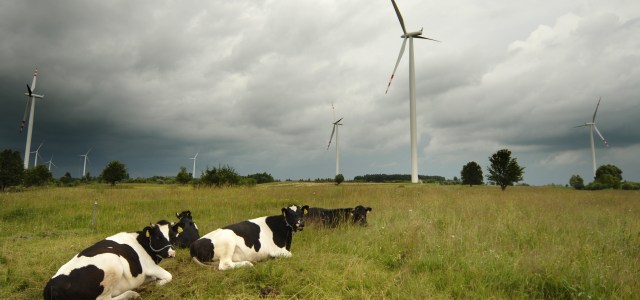Poland is clearly far from being a leader on climate action – it still uses coal to generate nearly 90 per cent of its electricity. However, below the doom and gloom headlines there are glimmers of hope that reveal a burgeoning will to join the global transition towards a clean energy future. Philippa Nuttall Jones finds that a growing sector of the population is increasingly seeing community energy as a means to a more democratic future.

In Poland, citizens and coops have started to take renewables in their own hands. (Photo by SCA, CC BY 2.0)
“It is difficult to get community power projects up and running because there are many barriers,” acknowledges Julia Krzyszkowska from the CEE Bankwatch Network. “It is difficult for these projects to sell energy to the grid and there is no stable up-to-date law to encourage the growth of renewables as in Germany,” she says.
“But there is change, in particular in terms of prosumers,” adds Krzyszkowska. Prosumers are energy producers and consumers, who are creating their own renewable energy and, in some cases, selling what they don’t use themselves back into the grid. According to research by Polish NGOs there are currently around 230-240,000 prosumers in Poland, but they believe that under the right conditions this figure could be as high as 2.5 million people by 2020.
This is a huge potential and realisable as “polls show that people are really interested in becoming owners of energy,” says Krzyszkowska. There is an appetite for this in Poland whet “by the desire to be independent from big companies and fluctuating prices and to have a feeling of democracy,” she adds. As in many countries, “in theory the energy market is open, but in practice it is managed by a handful of big companies”.
And in most of the energy companies, the majority stakeholder is the state. “This is not a democratic system where people can take control,” says Krzyszkowska. On the other hand, “community energy allows different stakeholders to own energy; people can take energy into their own hands and make their own decisions”.
There is state support for prosumers and they are allowed to sell the energy they make back to the grid, but larger community projects are currently barred from doing so. However, this has not stopped the creation of Nasza Energia or “Our Energy”. Set up by private companies and local municipalities, this is Poland’s first energy cooperative. It intends to use renewables, in particular a number of small biogas plants, to provide electricity and heating for local consumers. The project’s mission is to “promote the idea of cooperatives as the most democratic form….of local communities”.
According to Arnold Rabiega, a lawyer involved in the project, Nasza Energia will show that “energy from renewables doesn’t have to be expensive and doesn’t need support when it is produced on the local market”. He adds, “similar initiatives are starting to develop in Poland,” but the lack of supportive legislation means it may take time for them to develop. “Nevertheless, I’m absolutely sure that Poland has great conditions to develop these kind of projects,” he says optimistically.
Another glimmer of hope comes from Kisielice, a small Polish town that is powered 100 per cent by locally-produced renewable energy. Over 50 wind turbines with a total capacity of 94.5 MW have been installed in fields surrounding the town and a third wind farm is currently under construction. Later this year, the town will announce a tender for the purchase and installation of the region’s first solar photovoltaic plant. In addition to the current wind capacity, there is also a 6-megawatt biomass boiler in Kisielice that is connected to a district heating network, providing heat for 85 per cent of the community’s buildings. An added bonus is that the boiler burns cereal straw, boosting the income of local farmers.
This project is successful “because of the political will of the mayor, who is open-minded,” says Krzyszkowska. “He saw best practice in western European countries and had a vision that could bring benefits to the people in his town.” He was able to make his dream come true because he “took good care” and went about it the right way, says Krzyszkowska. “He went from home to home asking people what they thought. Therefore there was no backlash because people were consulted from the very beginning and they saw the direct benefits.”
As Krzyszkowska says, air pollution is “dramatically bad” in parts of Poland. Community energy projects powered by renewables can play a significant role in helping to solve this problem. But they need more support to get off the ground and prosper. “Polish NGOs are trying to awaken the political will and movement to allow this to happen,” says Krzyszkowska. “Citizen power is there, but it needs support.”
This article by Philippa Nuttall Jones (@Jones_Pippa) is reposted with permission and was first published at World Future Council. She is a Brussels-based communications specialist and EU desk editor of the Tree, a climate change communications tool.